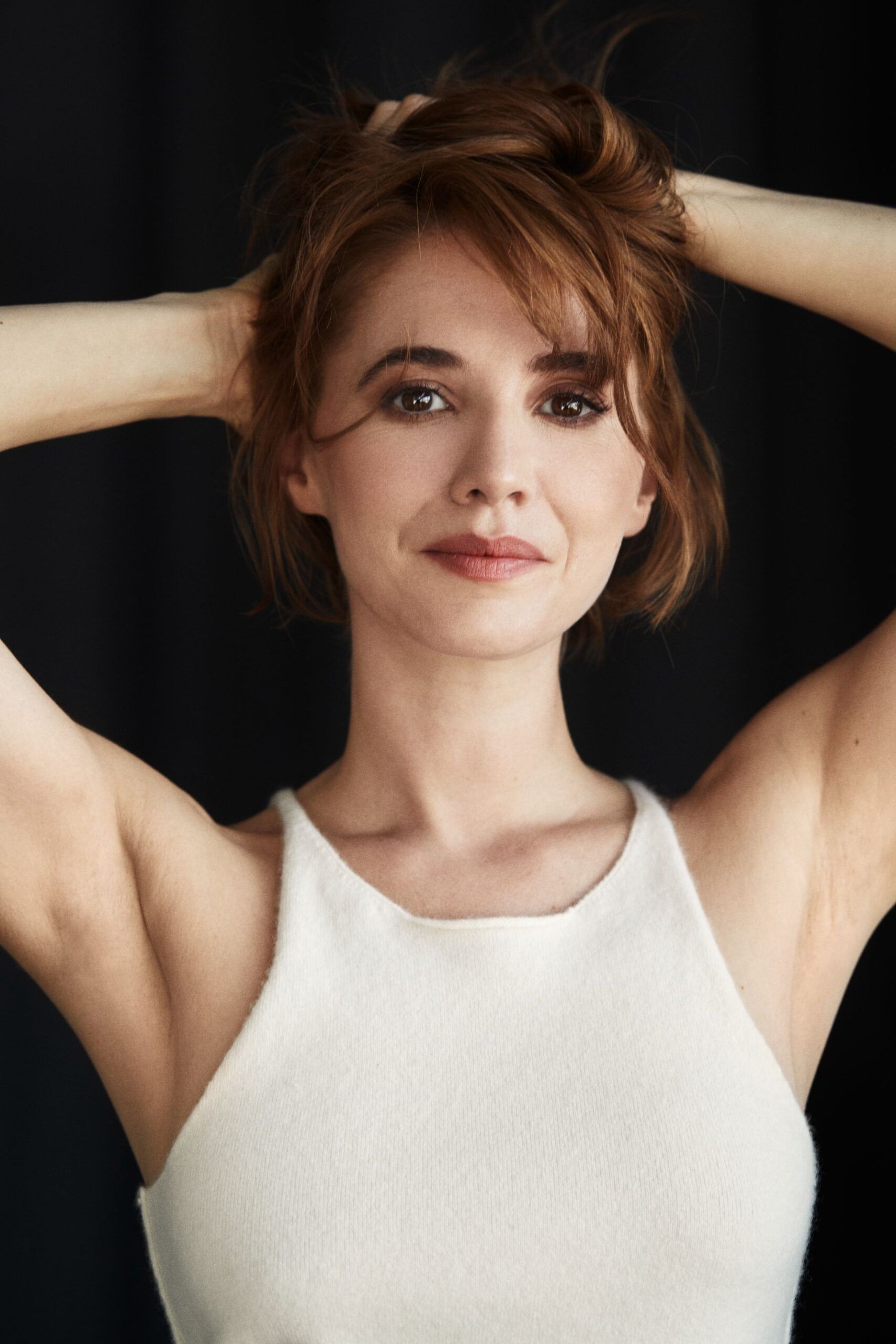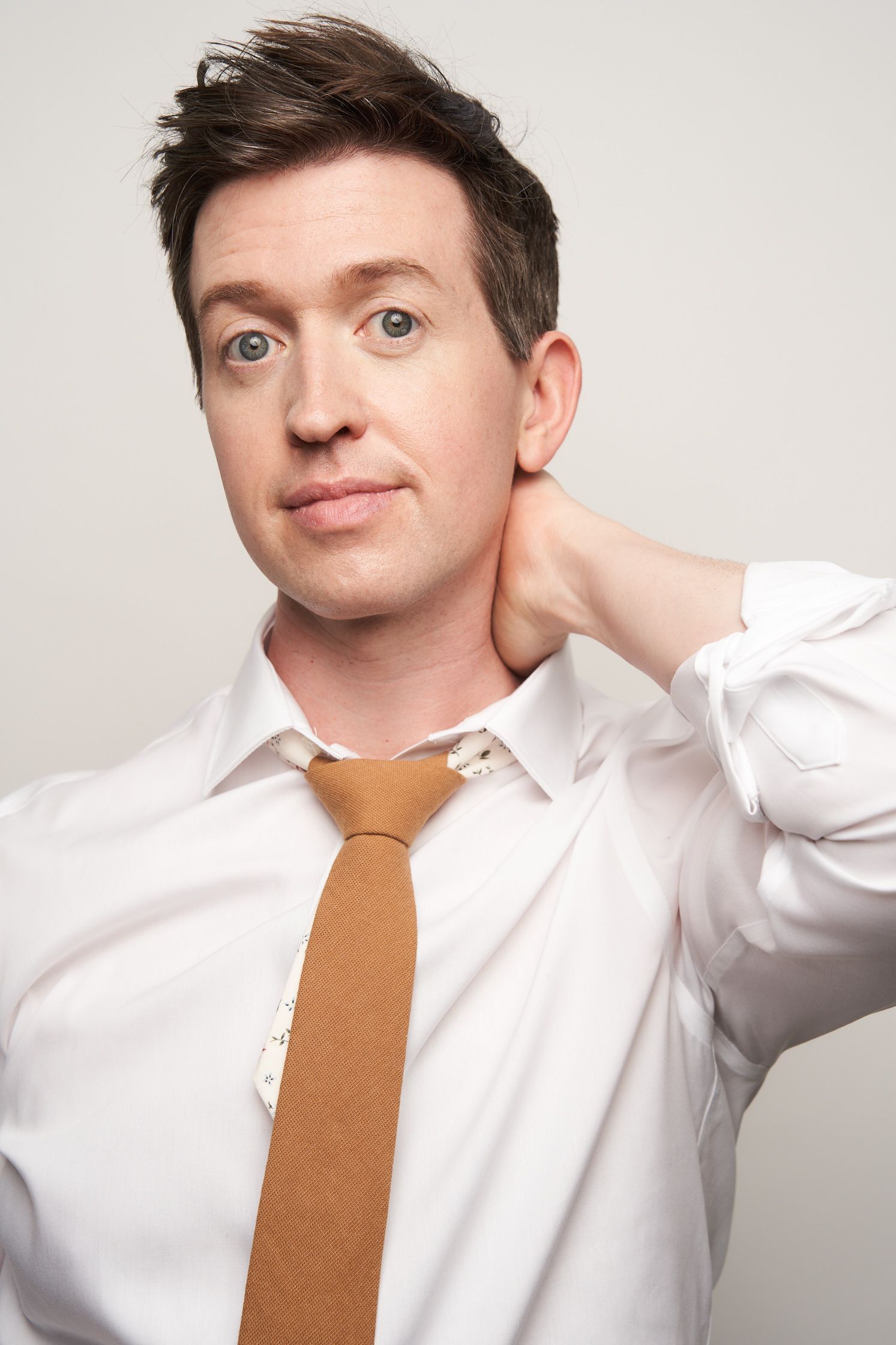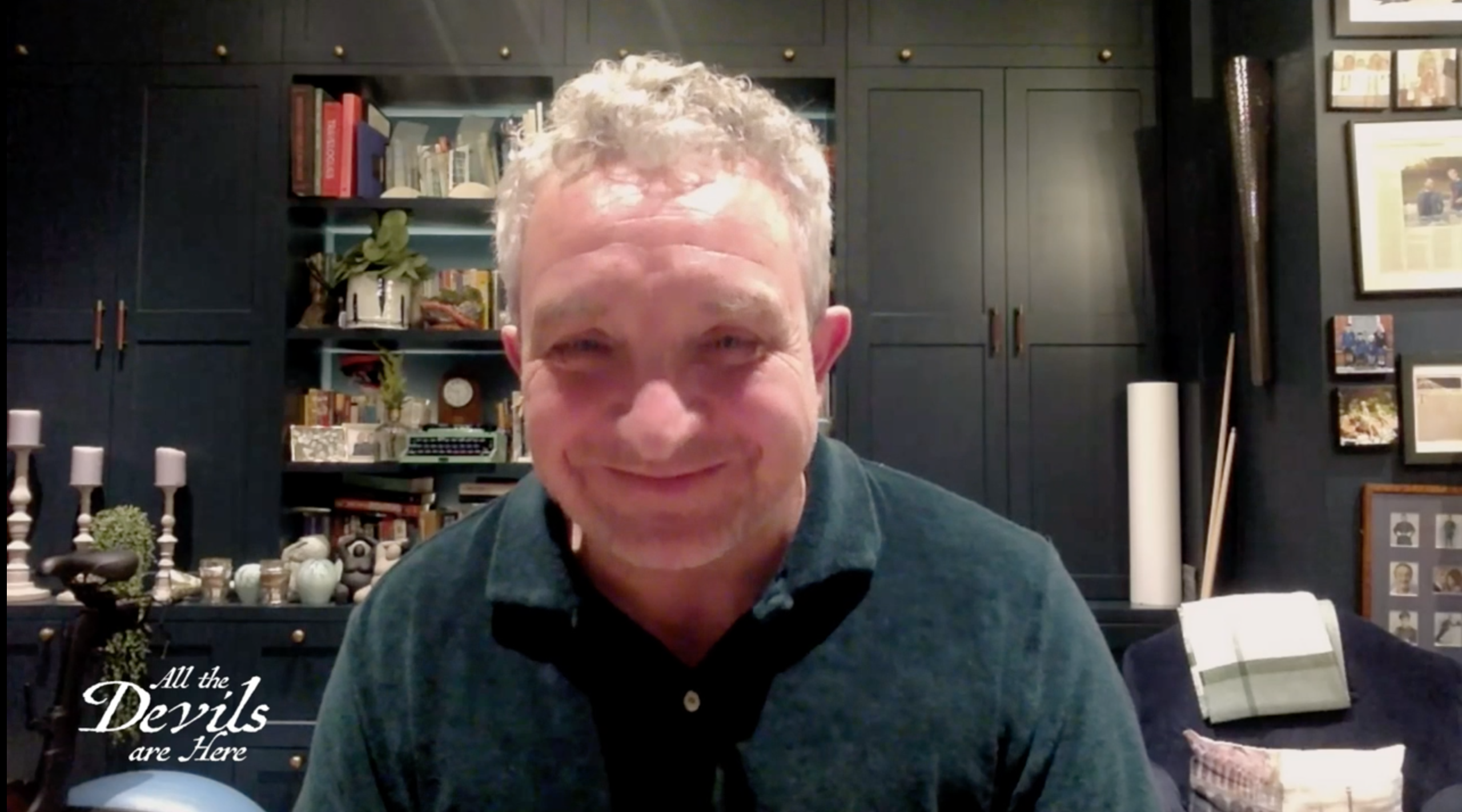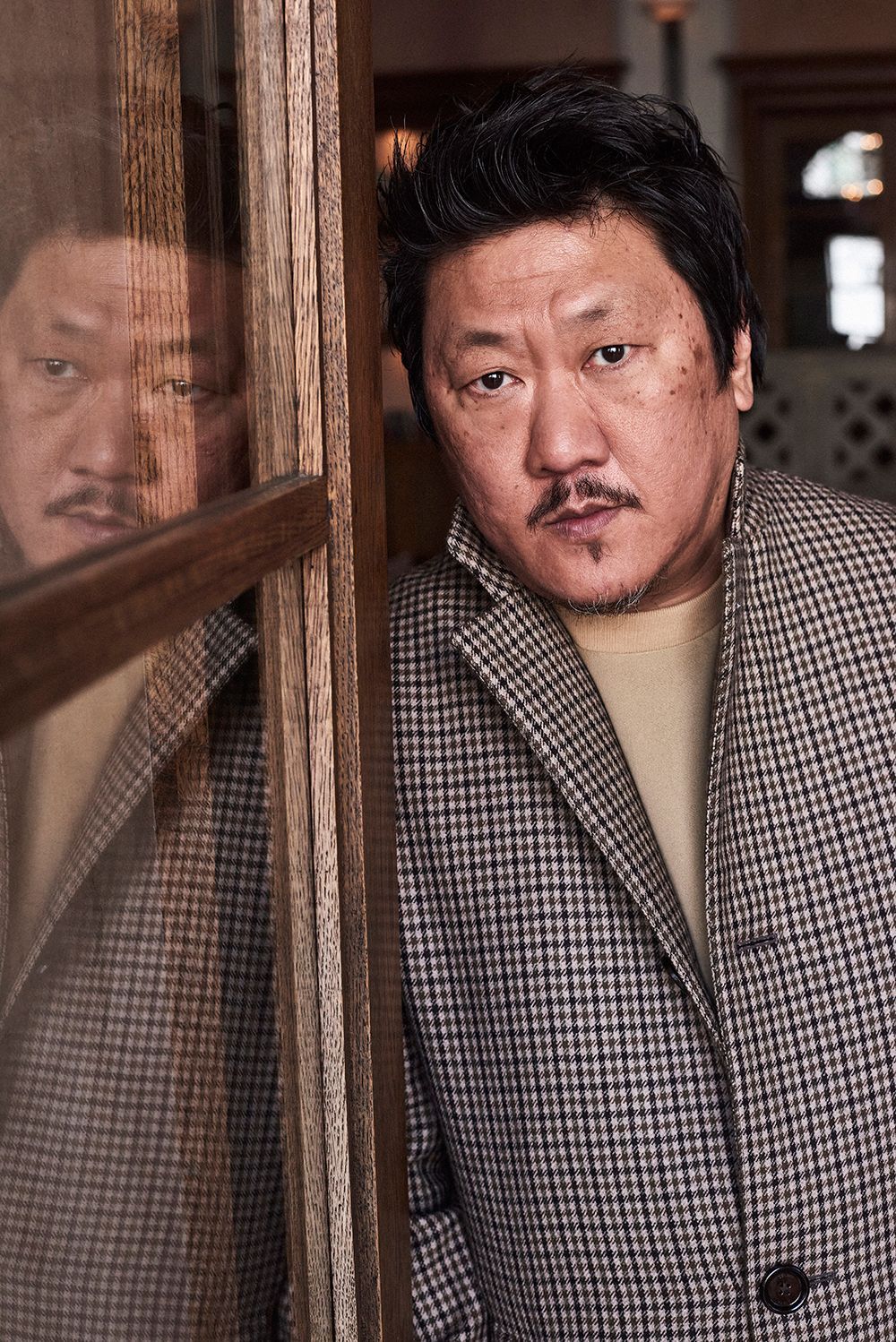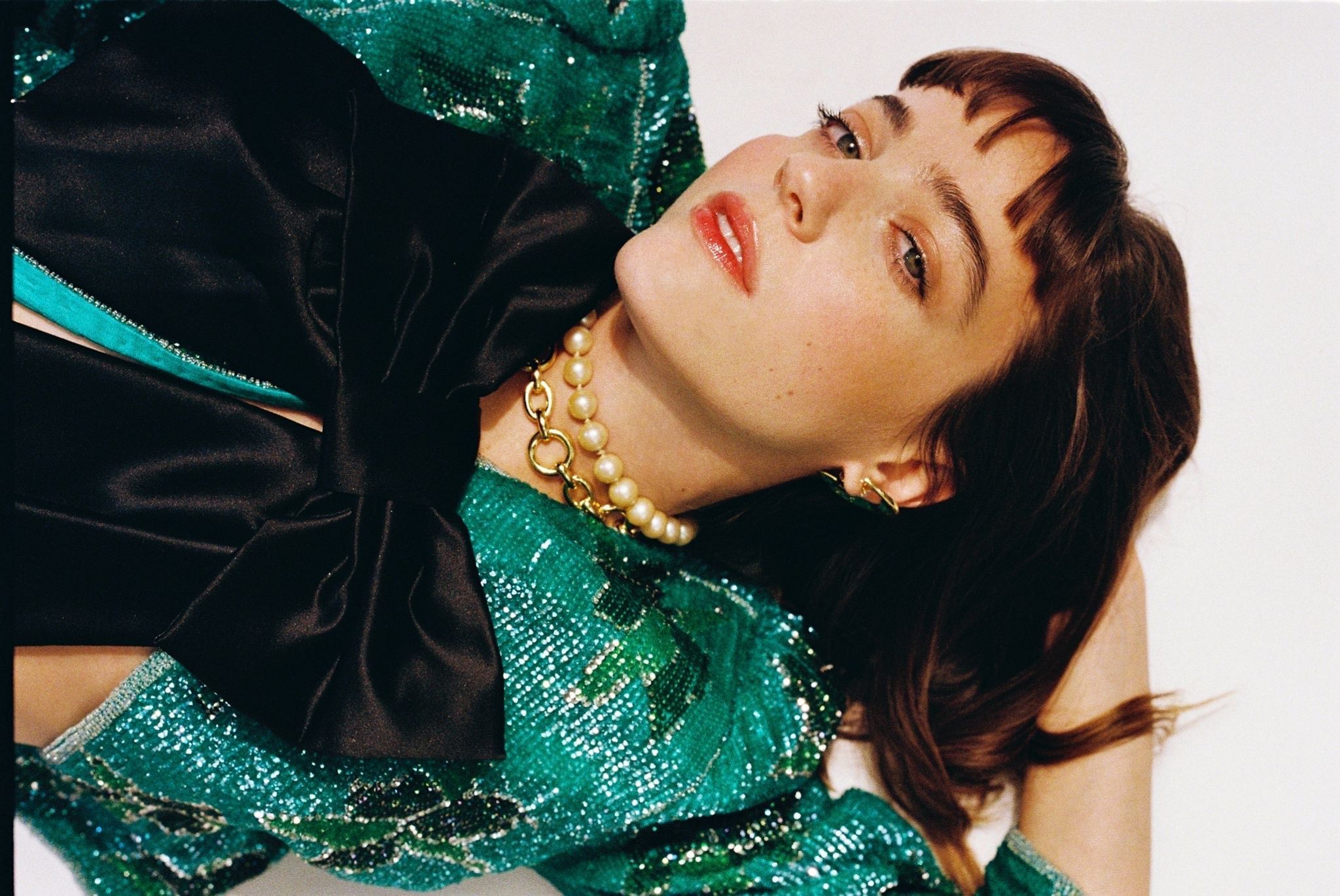Charlie Murphy is becoming a familiar face on British television. The Irish actress contains multitudes, working on Peaky Blinders as the tough trade unionist Jessie Eden to her well-known role as Ann Gallagher in BBC’s hit drama Happy Valley. Now, she stars in Netflix’s new four-part drama, Obsession. Based on Josephine Hart’s 1991 novel, Damage, Murphy plays the mysterious Anna, who is having an affair with her fiance’s dad, portrayed by Richard Armitage. The show has been noted for its take on BDSM relationships, portraying a relationship of domination and submission mingled with uncontrollable obsession and love.
1883 Magazine talks to Charlie Murphy about Obsession, working with intimacy coordinators, season 3 of Happy Valley and working with female writers.
Obsession is really interesting and twisted in a great way. Playing Anna, what is Obsession about from her point of view?
From her point of view, I suppose Anna’s main aim is to live this dual life, you know? These two worlds don’t cross over but complement each other and give her everything that she needs. So she’s great at compartmentalising. And if she could, she would continue that forever. From a moral stance, that would be okay with her. She doesn’t consider herself a homewrecker or this kind of femme fatale person. She has certain needs that she wants to explore with some people, like William. Then she has a world that she needs to be tethered to, which is Rish’s character, Jay.
Yeah, because the premise is already really interesting – she’s having an affair with her boyfriend’s dad, and yes, I know Richard Armitage is handsome, but still!
He is!
But then when you also get into you realizing, oh, no, this is like even more twisted because then we meet her mother and learn about her childhood trauma and abuse. Is there an aspect of the relationship that is about regaining control, for Anna?
I think it’s two things, and I hope this comes across well. Because of her childhood trauma and what’s happened to her, we were conscious of making sure that she’s not into the world of BDSM because she was abused; that was not born out of that, but there is an element of control that is important to her, for sure. For all humans, it’s never ‘one thing happened, so this happens’; a lot of things happen and shape us. We don’t have all the answers for Anna; she’s a very complicated person. I hope I played her well enough so the audience doesn’t judge her too harshly or at least understand her actions.
I wanted to hug her by the end of it! Again, you play that very well; she’s successful, intelligent, and articulate, but at the same time, she is just going through it. I thought the women in the show were amazing because, typically, media that tends to deal with BDSM portrays a certain type of woman – a shy, virginal paragon of goodness. BDSM in this show is enjoyable, it’s through the lens of a woman who enjoys having sex.
Yeah, Richard and I were talking about this, and I remember him saying that if this was two people in their twenties, everyone would be praising how progressive of them and how they are so open and communicating with each other. But the real issue is that they are with the wrong people! That’s where all the gnarliness starts.
That’s an understatement! With William, where we can see this clear obsessiveness mingled with a sort of love for her, I wonder how much she loves him back.
I think she does. The crux of his obsession is the undoing of her desire to be with him. If he could only just play it a bit cooler, maybe they could have lasted a bit longer!
If only he did not stalk her! [both laugh]
It is the stalking! But you can see that in how it’s brilliantly paced. Morgan Lloyd Malcolm, who you know, adapted it from Josephine’s Hart Damage. She marks it very well – he’s rising in his obsession and she’s cracking from that and she doesn’t feel safe or protected anymore. Having been the architect of that world, it’s paramount for Anna to enjoy it and hand over the reins to someone she trusts. But of course, when she starts seeing those seeds of obsession; that’s recklessness, and she can’t control it and the foundations of that world start cracking the deeper William’s obsession gets. Morgan does a great job of writing that. If we take it back to the original novel, ironically, Anna is not fleshed out as she is here. I can imagine writing it now; Hart would centre her more. But I suppose we have to look at that time, in the early 90s and socially, those stories were treated differently and we’re moving away from that era of the male gaze and male POV is King.
Something, again, I loved is that none of it felt exploitative or gratuitous. Like, every sex scene is very purposeful. Was that, again, something important when shaping the story? Not just having sex for the sake of the male gaze or the sake of it?
Absolutely. That’s the purpose of their relationship is to explore this. Their language is a physical one. We had Adelaide Waldrop, our intimacy coordinator and our director Lisa Barros D’Sa and her husband, Glenn Leyburn all working with us on this. Lisa kind of spearheaded that rehearsal process, mapping out the emotional arc and the physical and psychological arc of each sex scene – looking at the purpose of it, how it’s evolving, what’s happening.
There are three main sexual relationships we see on screen – Ingrid (portrayed by Indira Varma) and William, Jay and Anna and then of course, William and Anna’s secret relationship that sort of spills out. But it was a lot of fun! The main point of having an intimacy coordinator is to publicly and privately communicate about consent and how safe you feel. Once we set that up, we were free to explore in a way, I have never done in a show before. It’s kind of just you do the sex scene and you hope it went well or that the angles were okay. Whereas the prep we did with this was like theatre rehearsal – by the time we got to set, the only thing we worried about was the emotion of it all. It was like doing a fight sequence and brilliant.
Having an intimacy coordinator, especially with the BDSM angle, because I don’t know how much generally people know about BDSM and those dynamics.
Definitely. There is a whole world of this dominant-submissive that is not explored. I did not know about the intricacies of being able to be more than either merely dominant or submissive. There was so much research done, for example, with the bindings used and those little details, which I hope is demonstrated in some of the scenes.
I love hearing that, because the wider the context of the show, you want to be safe and supported. Bringing it back to women in the show, I loved Anna’s relationship with Peggy [Pippa Bennett-Warner], who seems to be the only person who knows Anna despite her enigmatic personality.
She is! Lisa would say that this show is about female friendships and relationships, and it’s a key relationship – Peggy tethers Anna, and she’s there to sort of show how she’s navigated the world and her life, which we don’t see on screen. I mean, what an amazing actress to be working with, Pippa Bennett-Warner; she’s so much fun. She brings so much warmth to Peggy. Sometimes, I would be reading and just say that she needs to give Anna a good slap! She’s so patient with her as a friend!
Just needs to shake her and say ‘for god’s sake Anna!’
Exactly. But she is the one person who knows everything about Anna; what she’s been through, you can kind of reverse navigate that and understand Peggy’s character and why she’s so protective and patient by knowing that Anna is working through stuff. I think she’s probably put down a list of people Anna should probably talk to! Anna does not like to be told what to do, so I can imagine she almost has to gently implement the idea of needing to talk to a professional.
Just says, “You know what would be a great activity for us? Therapy!” [both laugh]. Something I have noticed with your career is a big theme of women you have played are all about overcoming – whether it’s Anna or Ann in Happy Valley, I first saw you in Rebellion as Elizabeth Butler.
No way, did you see that?
One of my lockdown shows; I’m a history nerd! Is there something about these women that draw you in?
I’ve been really lucky. It’s not as if I decide how a character is going to be, but I’ve been really lucky with the things I have auditioned for, and I don’t know why that’s a theme. Women, we have to overcome a lot! Especially the historical stuff I’ve done. I still can’t believe you watched Rebellion.
We need to talk about Happy Valley. Congratulations on the success. What was it like coming back to Ann after all that time?
I loved it! We always knew that series two that we were going to come back, seven eight years later. I don’t think that that will ever happen again in my career where you just know that there’s going to be that hiatus and you will be back. It’s such a treat and, like opening a time capsule.Seeing everyone on set. It was just very familiar, straight away, which I love, but also so much had changed. So we were constantly between setups going, “Oh my God, and what happened to that person?” or “Oh my God, you broke up with that person?” It didn’t feel like a job.
Ann’s character in Happy Valley has been a very inspiring character for so many as she goes through her trauma and journey to recovery and then we come back and have that scene where she yells at Ryan, which you feel bad about, but it was so cathartic.
Definitely. Sally Wainwright is brilliant – I think she was let loose for that scene with Ryan! I particularly loved season two because of exactly what you said; it’s about Ann just taking ownership or, you know, taking control of what she can control and working through whatever she can work through. She still needs to work through it. Sally is brilliant at writing from a female perspective, the everywoman. The same with Morgan, who writes brilliant, well-rounded women from a female perspective and not just that, but also well-rounded male characters; the pendulum swings both ways as it should.
Even with William, you do like him even though, he stalks Anna.
What, you mean you have never lightly stalked someone? This was one of the most fun jobs I’ve worked on.
Any favourite behind-the-scenes moments that you particularly love?
Well, we were just always goofing around. We shot our intimate scenes very early. where it was all in that flat because of the location. So a lot of that was shot over ten days, mainly just Richard and I getting bruised, going back and doing it again. But as intense as that was and the subject matter, that was like probably the most fun we’ve had between scenes chatting about anything, Grand Designs. We were dying for cheese at the end of the week!
I do love the idea of you just there, with the blindfold, going, “I really want some cheese!”
We were talking about what cheeseboards we wanted – the stinkier, the better!
Obsession is out now on Netflix. Happy Valley is available on BBC iPlayer.
Interview Michaela Makusha
Photography David Reiss

